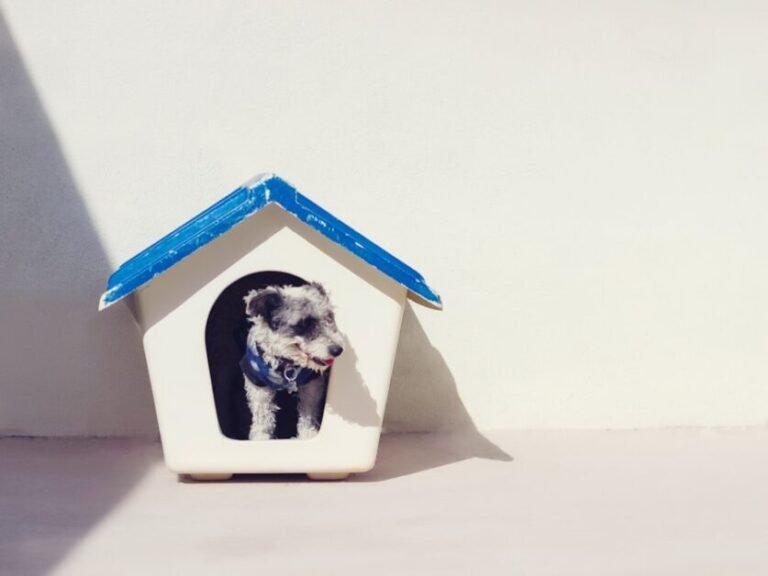Snooze Time Secrets: Exploring the Sleeping Habits of Border Collies
Border Collies are known for their intelligence, agility, and boundless energy. However, like all living creatures, they also need adequate sleep to maintain their overall health and well-being. Understanding the sleeping habits of Border Collies is essential for pet owners to ensure that their furry friends are getting the rest they need. In this article, we will delve into the importance of quality sleep for Border Collies, their typical sleep patterns, factors that influence their sleep, creating a comfortable sleeping environment, signs of sleep deprivation, tips for improving their sleep, common sleep-related health issues, and the ideal amount of sleep for these energetic dogs.
The Importance of Quality Sleep for Border Collies
Quality sleep is crucial for the overall health and well-being of Border Collies. Just like humans, dogs need sleep to rest and recharge their bodies and minds. Adequate sleep helps to regulate their metabolism, improve their immune system, and support their cognitive function. It also plays a vital role in their physical development and emotional stability. Without enough quality sleep, Border Collies may experience a range of health issues, including obesity, weakened immune system, irritability, and decreased cognitive function. As responsible pet owners, it is important to prioritize and promote healthy sleeping habits for our furry friends to ensure that they lead happy and healthy lives.
Understanding the Typical Sleep Patterns of Border Collies
Border Collies, like most dogs, have distinct sleep patterns that are influenced by their natural instincts and domestic lifestyle. On average, adult Border Collies need about 12-14 hours of sleep per day, while puppies and senior dogs may require even more. These hours of sleep are typically divided into several naps throughout the day, with longer periods of deep sleep during the night. Border Collies are known to be light sleepers, often remaining alert and responsive to their surroundings even while resting. This is a result of their herding instincts, as they are naturally vigilant and attentive to any potential threats or changes in their environment. Understanding their typical sleep patterns can help pet owners create a suitable sleeping routine and environment for their Border Collies.
Factors That Influence a Border Collie’s Sleep
Several factors can influence a Border Collie’s sleep, including age, health, exercise, diet, and environment. Puppies and senior dogs may require more sleep than adult dogs, while those with health issues may experience disruptions in their sleep patterns. Regular exercise and mental stimulation are essential for ensuring that Border Collies are sufficiently tired and ready for a good night’s sleep. Additionally, a balanced diet that meets their nutritional needs can also contribute to their overall sleep quality. The sleeping environment, including the comfort of their bed, temperature, and noise levels, can also impact a Border Collie’s sleep. Understanding these factors and addressing any potential issues can help improve their sleep quality and overall well-being.
Creating a Comfortable Sleeping Environment for Your Border Collie
Creating a comfortable sleeping environment is essential for promoting quality sleep for your Border Collie. Providing a cozy and supportive bed that is appropriate for their size and breed is crucial. The bed should be placed in a quiet and peaceful area of the house, away from any potential disturbances or loud noises. Maintaining a comfortable temperature and ensuring proper ventilation in the sleeping area is also important. Some Border Collies may benefit from the use of calming aids, such as soothing music or pheromone diffusers, to help them relax and unwind before bedtime. By creating a comfortable sleeping environment, pet owners can help their Border Collies feel safe, secure, and ready for a restful night’s sleep.
Signs of Sleep Deprivation in Border Collies
Recognizing the signs of sleep deprivation in Border Collies is crucial for addressing any potential issues and promoting their overall well-being. Common signs of sleep deprivation in dogs include excessive daytime napping, irritability, decreased appetite, restlessness, and difficulty concentrating. Some dogs may also exhibit changes in their behavior, such as increased aggression or anxiety. If you notice any of these signs in your Border Collie, it is important to consult with a veterinarian to rule out any underlying health issues and address any potential sleep-related concerns. By being attentive to their behavior and addressing any signs of sleep deprivation, pet owners can help ensure that their Border Collies are getting the rest they need to thrive.
Tips for Improving Your Border Collie’s Sleep
There are several tips that pet owners can implement to improve their Border Collie’s sleep. Establishing a consistent sleeping routine can help regulate their internal clock and promote better sleep quality. Providing regular exercise and mental stimulation throughout the day can help tire them out and prepare them for a restful night’s sleep. Creating a calming bedtime routine, such as a short walk or playtime followed by a relaxing massage, can help signal to your Border Collie that it is time to wind down and prepare for sleep. Additionally, ensuring that their sleeping environment is comfortable and free from any potential disturbances can also contribute to better sleep quality. By implementing these tips, pet owners can help their Border Collies establish healthy sleeping habits and improve their overall well-being.
Common Sleep-related Health Issues in Border Collies
While Border Collies are generally healthy and resilient dogs, they may still experience sleep-related health issues that can impact their overall well-being. Common sleep-related health issues in Border Collies may include sleep apnea, insomnia, restless leg syndrome, and narcolepsy. Sleep apnea is a condition characterized by pauses in breathing during sleep, which can lead to decreased oxygen levels and disrupted sleep patterns. Insomnia may result from stress, anxiety, or discomfort, leading to difficulty falling or staying asleep. Restless leg syndrome can cause discomfort and restlessness in the legs, making it difficult for Border Collies to settle down and sleep. Narcolepsy is a neurological disorder that can cause sudden and uncontrollable episodes of sleep during the day. Recognizing and addressing these sleep-related health issues is essential for promoting the overall health and well-being of Border Collies.
How Much Sleep is Ideal for a Border Collie?
The ideal amount of sleep for a Border Collie can vary depending on their age, health, and individual needs. On average, adult Border Collies need about 12-14 hours of sleep per day, while puppies and senior dogs may require more. It is important to note that individual dogs may have different sleep requirements, and it is essential to observe and understand your Border Collie’s specific needs. Factors such as exercise, mental stimulation, and the sleeping environment can also influence their sleep patterns and overall sleep quality. By being attentive to their behavior and adjusting their routine as needed, pet owners can help ensure that their Border Collies are getting the rest they need to thrive.
Promoting Healthy Sleeping Habits for Your Border Collie
In conclusion, promoting healthy sleeping habits for your Border Collie is essential for their overall health and well-being. Understanding their typical sleep patterns, addressing any potential factors that may influence their sleep, and creating a comfortable sleeping environment are crucial for ensuring that they get the rest they need. Recognizing the signs of sleep deprivation, implementing tips for improving their sleep, and addressing any potential sleep-related health issues are also important for promoting their overall well-being. By prioritizing and promoting healthy sleeping habits, pet owners can help their Border Collies lead happy, healthy, and fulfilling lives.









